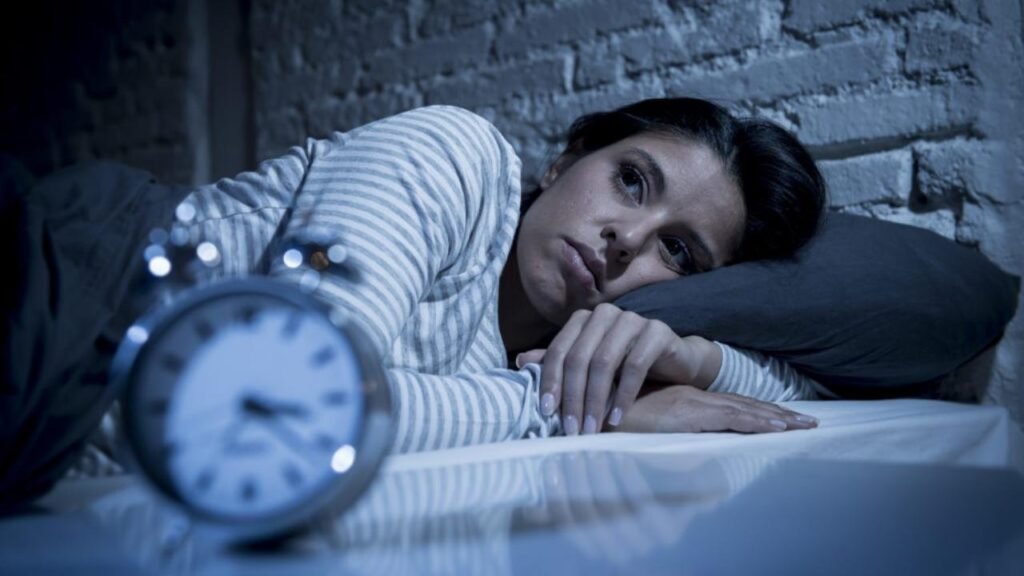Getting enough quality sleep is essential for robust sleep health in the UK, yet the question “How much sleep do I need?” is more complex than it first appears. While most guidelines echo the importance of sleeping seven to nine hours per night, understanding why this range is recommended and how to achieve it can transform not just rest—but overall wellbeing—no matter your age or lifestyle.[1][2][3][4]
How Much Sleep Do You Need?
For UK adults, seven to nine hours is the recommended range for optimal sleep health. This is not just about the number of hours spent in bed, but truly about the quality and regularity of rest. People aged 65 and older can maintain good health with slightly less—usually seven to eight hours. Teenagers, children, and babies require more sleep due to the demands of growth and development.[3][4][5][6]
| Age Group | Recommended Sleep (hours per night) |
| Adults (18-64) | 7–9 |
| Older adults (65+) | 7–8 |
| Teenagers | 8–10 |
| Children & babies | 9+ |
Few people thrive outside these ranges, though there can be individual variation based on genetics or underlying health conditions.[2][6][3]
Why Is Sleep Health Important?
The quality of sleep has direct and significant impact on everything from learning and memory to immune strength and emotional resilience. Consistent, high-quality sleep boosts energy, supports the brain’s ability to concentrate and solve problems, strengthens your immune defenses, and balances metabolism. Chronic lack of sleep increases the risk for cardiovascular disease, diabetes, obesity, anxiety, and depression. It can also undermine relationships, work performance, and quality of life.[7][8][1][2][3]
Moreover, getting too much sleep—regularly exceeding nine hours for adults—has been linked to lower mood, increased risk of chronic disease, and impaired cognitive functioning. Your goal should be to find a rhythm that leaves you feeling refreshed and alert during the day, and sustainably meets your body’s needs over the long term.[4][5][9][3]
Factors Affecting How Much Sleep You Need
The “how much sleep do I need” question doesn’t have a one-size-fits-all answer, since factors such as genetics, stress levels, job routine, and overall physical and mental health come into play. You may need to adjust your sleep needs if:[6][1][3]
- You are under significant stress.
- You are recovering from illness or strenuous activity.
- You consistently feel drowsy during the day, even after a full night’s sleep.
- Your sleep is frequently interrupted or you have a sleep disorder.
Signs that your sleep health in the UK needs attention include difficulty falling or staying asleep, regularly waking unrefreshed, or feeling sleepy through the day. Consulting a GP can help if problems persist or if underlying health conditions are suspected.[10][11]
Building Healthy Sleep Habits
Optimising sleep health means more than just getting enough hours—it’s about building sustainable routines. Here’s how you can improve both quality and quantity of your sleep:[11][1][10]
- Create a consistent sleep schedule: Go to bed and wake up at the same time every day, including weekends.
- Prioritise sleep hygiene: Keep your bedroom dark, quiet, and cool; ensure your mattress and bedding are comfortable.
- Limit screen time before bed: Blue light from electronics can trick the brain into staying awake, so aim to switch off at least an hour before sleep.
- Adjust diet and stimulants: Avoid caffeine, alcohol, and heavy meals late in the evening.
- Exercise regularly: Physical activity can help deepen your sleep, but try to finish vigorous workouts at least two hours before bedtime.
- Get daylight exposure: Natural light helps reinforce your internal sleep cycle, so step outside during the morning hours.
- Relax and unwind: Reading, mindfulness, gentle yoga, or stretching routines in the evening can prime the body for restful sleep.[12][1]
Also Read: How does zopiclone compare to other sleep aids in effectiveness and safety
What If You Still Feel Tired?
If you’re getting the recommended hours but still feel tired, consider tracking your sleep habits with a sleep diary. Note your routine, waking times, daytime naps, and consumption of caffeine or alcohol. This can help identify patterns or triggers—such as late screen use or inconsistent bedtimes—that impact your rest. Sometimes, the problem might not be the amount but the quality of sleep, which could be due to sleep disorders like insomnia, sleep apnoea, or restless leg syndrome. If in doubt, it’s always worth seeking advice from your pharmacist or GP.[13][1]
When to Seek Professional Help
Persistent sleep issues—such as regularly taking longer than 30 minutes to fall asleep, waking multiple times a night, or relying on medication for prolonged periods—merit professional attention. In the UK, support is available through GPs, specialist sleep clinics, and organisations like the British Sleep Society and the Sleep Charity, who provide extensive resources and guidance.[1][10][2]
Final Thoughts
Caring for your sleep health in the UK means listening to your body and respecting your need for rest as much as you do nutrition or activity. When in doubt, ask yourself, “How much sleep do I need to feel energised throughout the day?” For most UK adults, that means between seven and nine hours of quality sleep each night, supported by consistent routines and healthy choices. Instead of chasing perfect sleep, focus on sustainable habits: good sleep is both a foundation and a reward for a healthy, happy life.[5][11][3][4][1]
If you’re struggling with sleep difficulties and looking for a convenient way to access trusted medication, consider buying Zopiclone online from a reputable UK pharmacy. Zopiclone is an effective short-term treatment for insomnia when used responsibly and under medical guidance. Always ensure you have a valid prescription and follow dosing instructions carefully to support your journey toward better sleep health.
Take control of your sleep and well-being today by ordering Zopiclone safely and securely online. Experience the benefits of a good night’s rest delivered right to your doorstep.
Buy Zopiclone Online in the UK
Also Read: How Much Sleep Do Women Need? The Complete Guide to Women’s Sleep Requirements
Reffrences:
- https://www.mentalhealth.org.uk/explore-mental-health/publications/how-sleep-better
- https://www.mentalhealth.org.uk/explore-mental-health/publications/sleep-matters-impact-sleep-health-and-wellbeing
- https://www.hellolingo.com/uk/blog/how-much-sleep-is-enough
- https://www.hillarys.co.uk/static/sleep-statistics-2025/
- https://www.thensf.org/how-many-hours-of-sleep-do-you-really-need/
- https://www.bupa.co.uk/newsroom/ourviews/how-much-sleep
- https://pmc.ncbi.nlm.nih.gov/articles/PMC4434546/
- https://www.mayoclinic.org/healthy-lifestyle/adult-health/expert-answers/how-many-hours-of-sleep-are-enough/faq-20057898
- https://www.cam.ac.uk/research/news/seven-hours-of-sleep-is-optimal-in-middle-and-old-age-say-researchers
- https://thesleepcharity.org.uk/information-support/adults/sleep-hygiene/
- https://www.sleepfoundation.org/sleep-hygiene
- https://www.nhs.uk/every-mind-matters/mental-wellbeing-tips/how-to-fall-asleep-faster-and-sleep-better/
- https://www.cdc.gov/sleep/about/index.html
- https://www.nhlbi.nih.gov/files/docs/public/sleep/healthy_sleep.pdf
- https://www.rcpsych.ac.uk/mental-health/mental-illnesses-and-mental-health-problems/sleeping-well





